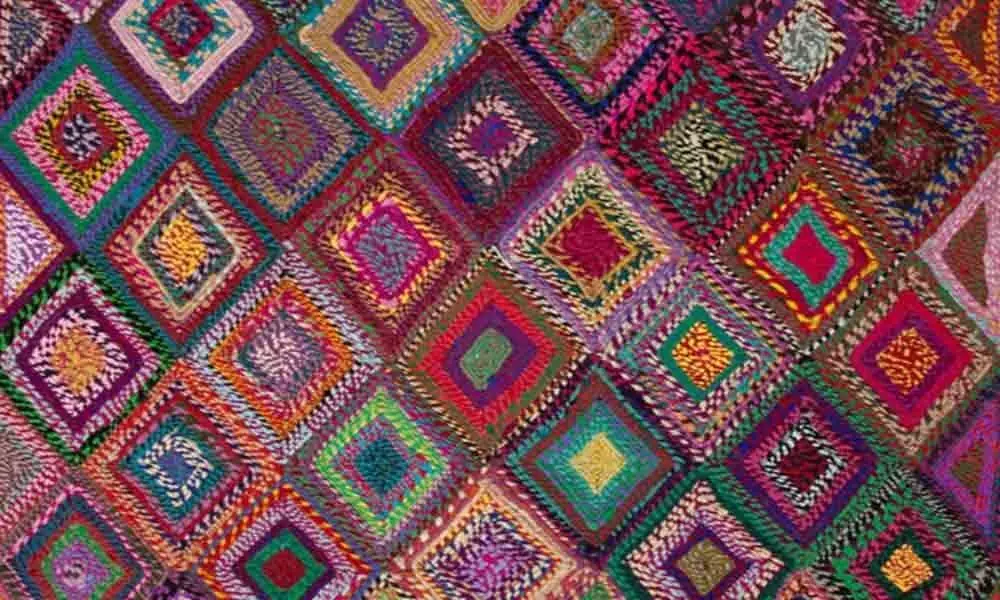Live
- Koil Alwar Tirumanjanam held at Tiruchanur
- ‘If you win, EVMs not tampered; when you lose, EVMs tampered’
- Delhi's air quality may slip to 'severe' in 24 hours
- Speed up PAC-5 works, TTD Addl EO tells staff
- Shinde resigns as CM amid BJP's push for Fadnavis
- Supreme Court's no to ballots papers
- Isro's Shukrayaan gets Centre’s nod
- Nellore dist witnesses widespread rains
- POCSO case registered against ex-MLA Chevireddy
- Fight to save democracy, Constitution will continue: Kejriwal
Just In

If non-biodegradable plastic waste is a growing menace the world over, some efforts are on to put it to practical use. Every year, over half of India's plastic waste is recycled into products, especially polyester fibres that can be used as textiles.
New Delhi (IANSlife): If non-biodegradable plastic waste is a growing menace the world over, some efforts are on to put it to practical use. Every year, over half of India's plastic waste is recycled into products, especially polyester fibres that can be used as textiles. Rugs and carpets is one industry using these textiles, but there are still only a handful of players involved in such sustainable manufacturing. Delhi-based The Rug Republic is one such company.
"Necessity is the mother of invention. Our clients needed products, which were light weight, easy to maintain, odour free and equally good for outdoor and indoor. We knew that fibres and yarns are extracted from plastic bottles. That's how the idea of recycling PET bottles came along," said Aditya Gupta, owner of The Rug Republic (TRR).
An IIT Roorkee graduate, Gupta converted his father's small business set-up in Meerut into a highly profitable home fashion brand.
"Polyester is a manmade fibre, synthesised from petrochemical products through a process called polymerisation. Yarns created from recycled polyester can be repeatedly recycled with no degradation in quality, allowing one to minimise wastage," Gupta told IANSlife.
Under the upcycling process, millions of plastic bottles are bought from waste traders, who collect them from waste pickers. After removing the metal caps, rings, PVC labels of these bottles, they are put in bailing machines, which compress and crush them into bales. These bales are then taken to a recycling facility, where they are shredded, washed dried and turned into 'washed flakes'. Spinning units used these washed flakes to make a yarn, which is then are used to weave rugs.
The rugs manufacturer and exporter emphasises green and responsible production using non-polluting manufacturing practices and conservation of energy and materials as far as possible.
"At TRR, we have been reducing the use of plastic in packaging and labeling material. We are also gradually making a transition towards manufacturing lifestyle products with sustainable materials, and since 2005, we've started making recycled jeans," said Gupta.
"We are known for our creativity and we're constantly on the look out for new ideas. All our home décor products are eco-friendly made from PET recycled denim, recycled bicycle tubes and recycled fabrics," he added.

© 2024 Hyderabad Media House Limited/The Hans India. All rights reserved. Powered by hocalwire.com







